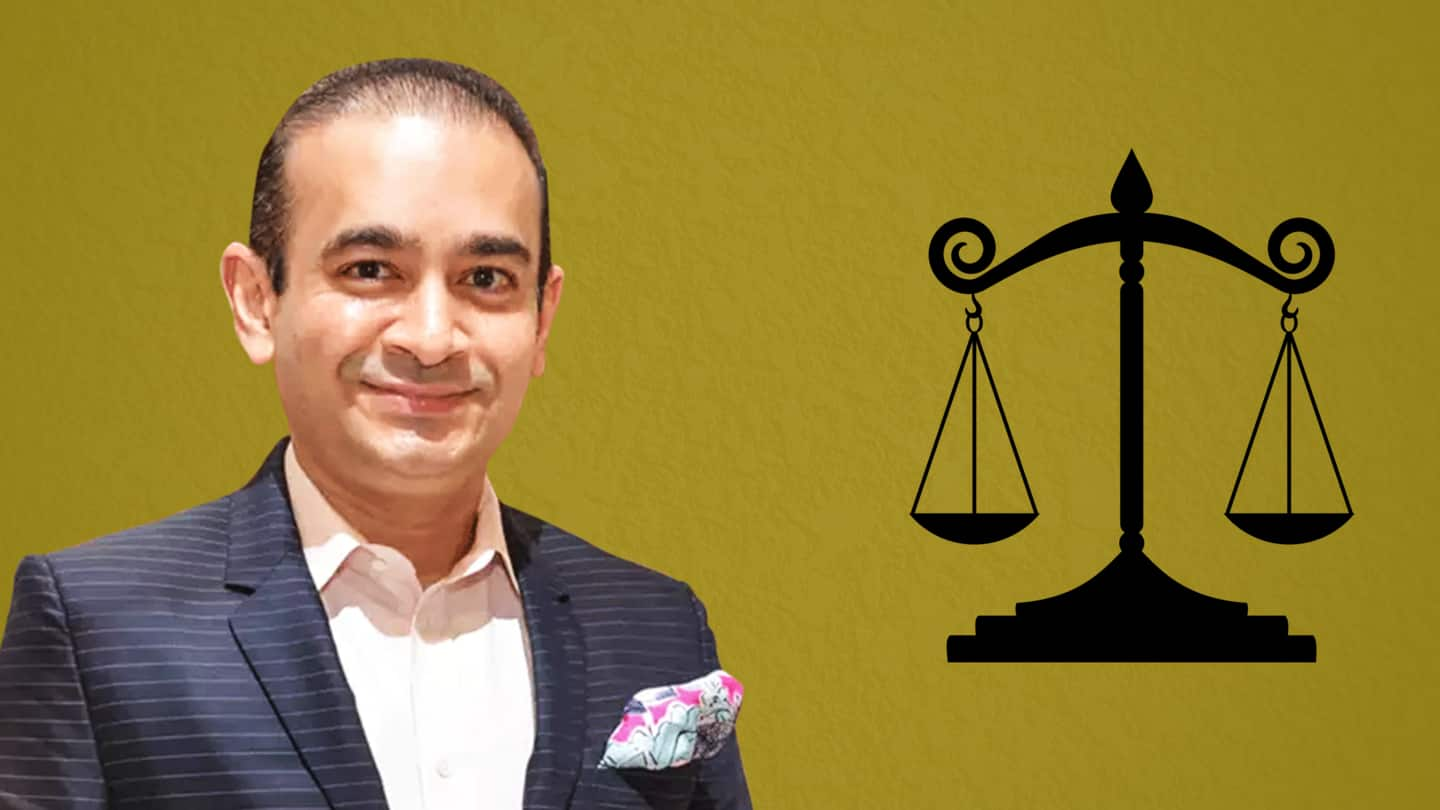UK court to decide on Nirav Modi's extradition today
What's the story
A court in the United Kingdom (UK) will decide today whether beleaguered diamantaire Nirav Modi, wanted in connection with the Punjab National Bank (PNB) scam, must be extradited to India or not.
District Judge Samuel Goozee at the Westminster Magistrates' Court will be pronouncing the verdict and Modi is expected to appear through video conferencing from the Wandsworth Prison in south-west London.
Background
Context: Modi orchestrated the biggest scam of India's banking history
Modi, whose Nirav Modi Jewels once redefined luxury, is accused of orchestrating the biggest fraud of India's banking history to the tune of Rs. 13,000 crore.
He fled the country, later settled in London, was tracked by a journalist of The Telegraph, and was arrested in March 2019.
The 49-year-old is being probed by the Central Bureau of Investigation (CBI) and Enforcement Directorate (ED).
Bail
Modi failed to get bail; CPS presented India's case
Since his arrest, Modi's seven attempts to secure bail, both at Magistrates' Court and High Court failed as he was deemed as a flight risk.
On behalf of India, the Crown Prosecution Service (CPS) made a case for Modi's extradition.
CPS barrister Helen Malcolm said there's enough evidence to point toward a ponzi-like scheme "where new Letters of Undertaking (LoUs) were used to repay old ones."
Quote
'He used companies to acquire billions of dollars of credit'
"The simple and stark fact is that he (Nirav Modi) used his three partnership companies to acquire billions of dollars worth of credit which were entirely unsecured and LoUs (letters of undertaking) were issued for wholly bogus trade," she had asserted during the proceedings.
Defense
Modi's lawyers said getting LoUs is standard practice
In his defense, the lawyers of the fugitive businessman said that getting LoUs is a standard practice.
They also submitted opinions from retired High Court judges and legal experts to argue that a charge of cheating isn't made out. The defense team pointed out that it was the CBI who admitted that officials from PNB were "hand-in-glove" with Modi while issuing LoUs.
Mental health
Modi's mental health also figured during arguments
Modi's lawyers had also said that he suffered from severe depression.
During the proceedings, the court attempted to understand if his mental conditions meet or don't meet the parameters of Section 91 threshold of the Extradition Act 2003.
This section was most recently used to stop the extradition of WikiLeaks founder Julian Assange. It was concluded that Assange is a high suicide risk.
Possibility
An appeal after today's verdict is certain
Whichever way the verdict swings in this nearly two-year-long legal battle, an appeal by the losing side is imminent.
To recall, in December 2018, a UK court had ordered the extradition of Kingfisher boss Vijay Mallya but he still remains in the country.
Meanwhile, the next hearing in another high-profile extradition case — that concerning arms dealer Sanjay Bhandar — is scheduled for April.
